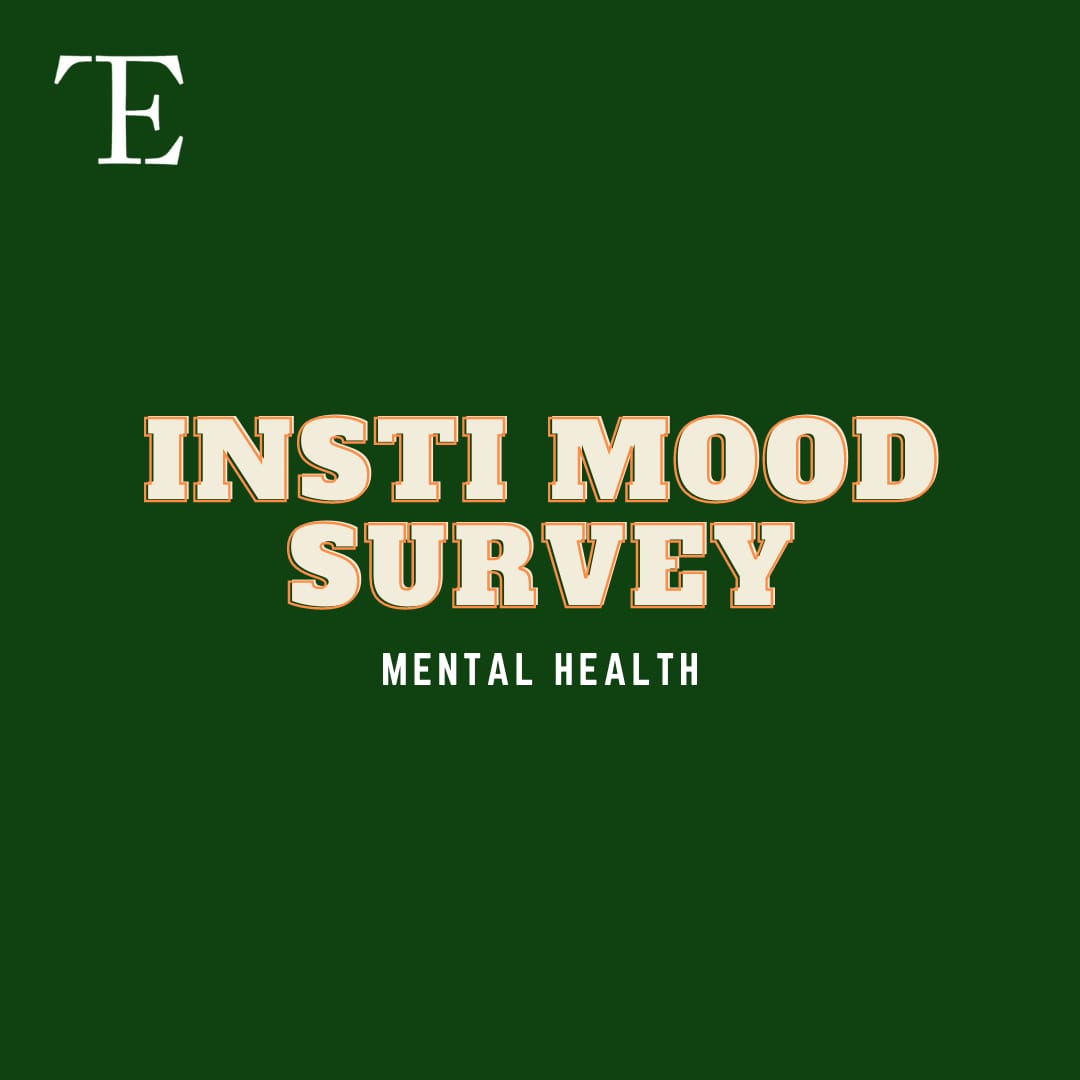Edited by Neha Cherian
Note: T5E’s Exit Survey 2021 was conducted in the month of June to study graduating students’ perspectives on life at IIT Madras. The survey had a total of 374 responses across the entire 2020 graduating class (UG + PG) of which around 65% of the participants were UGs (B.Tech + DD+ MA) and the remaining were PGs (Msc + MTech + MBA + PhD + MS).
The survey explored various aspects of a student’s life such as Lifestyle, Personal, Career, Academics, Extra-curricular and Opinion.
In this article, we delve into the views held by the students with regard to their personal lives- from friend circles to relationships. Let’s go!
1. General Information
The sex ratio (male : female) among the respondents was close to 5:1.
Around 60% of respondents were from metropolitan cities while a fifth of them were from towns. A low of around 13% of the participants hailed from the countryside.
2. Nature and Behaviour
Most of the respondents admitted to being ambiverts by nature and very few (around 15%) identified as extroverts.
Insti life seems to have influenced the overall personality of a significant set of people, with around 52% of the respondents acknowledging a change in their extrovert/introvert nature. Socializing with people from diverse backgrounds does not appear to have been a significant issue for the respondents.
3. Friend Circle
The majority of the respondents had almost an equal or more number of friends in insti than in their hometown/school.
32% of the respondents hailing from urban areas had 6-10 close friends in their circle. For students hailing from the countryside, the figure was slightly lower at 29%
As anticipated, most students had 1-5 close friends. A comparatively smaller set of people had more than 10 friends in their immediate circle.
Surprisingly, among the respondents with more than 10 friends, around 54% were able to regularly keep in touch with all of their friends during the pandemic. However, less than 45% of the respondents with fewer than 10 close friends were able to remain in touch with all of their friends during the pandemic.
4. Professional relationships
Nearly half of the respondents stated that they were attentive in their classes most of the time. However, they did not have any professional relationship with the professors.
Around one-fourth of the respondents were able to interact with professors during the class but the interaction was only limited to class hours.
A very small set (around 10%) of people did not pay attention to the class. They admitted that they weren’t even aware of their professor’s name.
5. Family relations
Despite the hectic insti schedule, many students maintained a close relationship with their family, with more than 60% of the respondents talking to their family members almost everyday!
More than 54% of the respondents who regularly spoke to their family members while in insti admitted to improved relations with their family during the pandemic.
Nearly half the respondents who hardly communicated with their family members while in insti showed almost no change or improvement in relations with their family members.
6. Interactions in insti
Although insti provides exposure to a diverse set of people, around half of the respondents were not able to develop close relationships with people who identify with a different gender. However, they enjoyed diversity in their acquaintances, which can be imputed to the interactions that PoRs and other insti platforms provide.
A low of around 14% of the respondents were actually able to enjoy a close friendship with people who identify with a different gender.
7. Personal relationships
Insti life comes with the possibility of romance and the same is discernible in the findings of the survey. Nearly 18% of the respondents admitted to being in a relationship during their stay in insti. As a whole, around 32% of the respondents have been in a relationship both in and outside insti.
It was observed that among those who had a close friendship with people who identify with a different gender, a high of 64% engaged in a relationship. Of those who were not close with people of other genders, only 17% were in a relationship.
Among the male respondents, a mere 13% were in a relationship with someone in insti. However, among the females, the number was up to 40% for the same analysis. This is can be partially attributed to the skewed sex ratio in insti.
Of all the respondents who admitted to being in a relationship, approximately three-fourths of them had been in only one relationship and this seems to be the most common number.
The end of a relationship has troubled most of the respondents, with a whopping 84% of them confessing that they were unable to recover from it quickly. Several respondents took around a week to bounce back. Approximately a fourth of them admitted to feeling depressed for over a semester.
8. Marriage Plans
The majority of the respondents have not seriously thought about marriage. A quarter of the respondents claimed that they would like to get married more than 5 years from now. A small set of people, around 10%, did not want to consider marriage as one of their life plans.
Among the UG respondents, 35% would like to get married after 5 years. However, the number for PG respondents was 7% for the same analysis.
13% of the PG respondents feel that they would like to remain single. However, only 10% of the UG respondents feel that they are better off single. The difference is marginal which is probably due to the minor age gap between UG and PG respondents.
Nearly a quarter of the PG respondents would like to get married in 1-2 years, while the same number is predictably lower at 2% for UG students.
9. Conclusion
A significant number of respondents were male and a majority of them hail from urban areas.
A majority of people admitted to being introverts or ambiverts before coming to insti- this can be partially attributed to the nature of JEE preparation. A remarkable number of people claimed that their nature and personality has changed during their time in insti.
More than half of the respondents had an equal or more number of friends in insti than in their hometown. Having a set of 1-5 close friends was quite common among the respondents. The majority of the respondents were able to keep in touch with most of their friends during the pandemic.
Around half of the respondents admitted to being attentive in their professor’s class but did not try to interact much with them. Although some people did try to build a professional relationship with their professors in and outside class hours, they were a minority.
The majority of the respondents spoke with their family members everyday while at insti. Nearly half of the respondents in this category showed an improved relation with their families during the pandemic.
Most of the people were able to make acquaintances with those who identify with other genders but only a few were able to build close friendships.
Less than 20% of the respondents admitted to being in a relationship in insti. A large number of these have been in only one relationship. The end of a relationship has troubled almost all the respondents, with the majority of them taking a significant amount of time to recover.
The majority of the respondents would either like to get married after 5 years or haven’t seriously thought about marriage. Among the PGs, a few are married and most of them would like to get married in 1-4 years. However, among the UGs, the analysis is very different, with students wanting to marry after 5 years or not marry at all.





